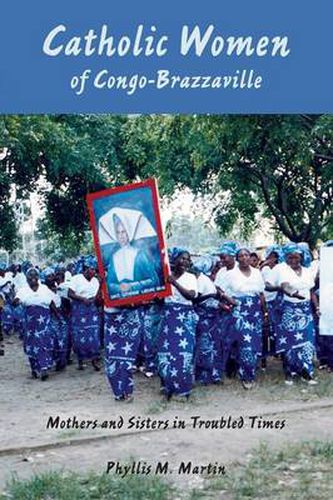Readings Newsletter
Become a Readings Member to make your shopping experience even easier.
Sign in or sign up for free!
You’re not far away from qualifying for FREE standard shipping within Australia
You’ve qualified for FREE standard shipping within Australia
The cart is loading…






Catholic Women of Congo-Brazzaville explores the changing relationship between women and the Catholic Church from the establishment of the first mission stations in the late 1880s to the present. Phyllis M. Martin emphasizes the social identity of mothers and the practice of motherhood, a prime concern of Congolese women, as they individually and collectively made sense of their place within the Church. Martin traces women’s early resistance to missionary overtures and church schools, and follows their relationship with missionary Sisters, their later embrace of church-sponsored education, their participation in popular Catholicism, and the formation of women’s fraternities. As they drew together as mothers and sisters, Martin asserts, women began to affirm their place in a male-dominated institution. Covering more than a century of often turbulent times, this rich and readable book examines an era of far-reaching social change in Central Africa.
$9.00 standard shipping within Australia
FREE standard shipping within Australia for orders over $100.00
Express & International shipping calculated at checkout
Catholic Women of Congo-Brazzaville explores the changing relationship between women and the Catholic Church from the establishment of the first mission stations in the late 1880s to the present. Phyllis M. Martin emphasizes the social identity of mothers and the practice of motherhood, a prime concern of Congolese women, as they individually and collectively made sense of their place within the Church. Martin traces women’s early resistance to missionary overtures and church schools, and follows their relationship with missionary Sisters, their later embrace of church-sponsored education, their participation in popular Catholicism, and the formation of women’s fraternities. As they drew together as mothers and sisters, Martin asserts, women began to affirm their place in a male-dominated institution. Covering more than a century of often turbulent times, this rich and readable book examines an era of far-reaching social change in Central Africa.